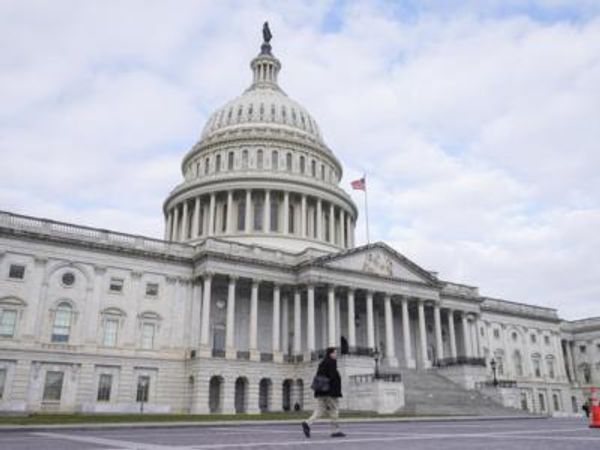Topline
Supreme Court Justice Stephen Breyer formally announced his retirement Thursday, paving the way for President Joe Biden to name his first nominee to the high court, which he said he expects to do by the end of February—here’s what to expect as the nomination and confirmation process plays out.

Key Facts
Breyer said in a letter to the White House his retirement will take effect when the current Supreme Court term ends in late June or early July, “assuming that by then my successor has been nominated and confirmed.”
Biden “expressed the nation’s gratitude” for Breyer’s “remarkable career of public service” at the White House on Thursday, saying it was a “bittersweet day for me” and describing him as a “model public servant in a time of great division.”
Biden confirmed Thursday he plans to nominate the first Black woman to the Supreme Court.
The president said his process of selecting a nominee will be “rigorous” and he will “seek the advice” of the Senate and get input from lawmakers from both parties, scholars, lawyers and Vice President Kamala Harris, who is herself an attorney.
Once Biden makes a nomination, he will ask the Senate Judiciary Committee to “promptly” hold confirmation hearings, and then a simple majority of the full Senate will have to vote in favor of their confirmation for it to go through.
Crucial Quote
“I will select a nominee worthy of Justice Breyer’s legacy of excellence and decency,” Biden said about nominating Breyer’s successor. “I’ve made no decision except one: the person I will nominate will be someone with extraordinary qualifications, character, experience and integrity. And that person will be the first Black woman ever nominated to the United States Supreme Court.”
What To Watch For
Who Biden’s nominee will be. Biden said Thursday he still has not selected Breyer’s successor, but the leading contenders are so far widely viewed to be Judge Ketanji Brown Jackson, who serves on the D.C. appeals court, and California Supreme Court Justice Leondra Kruger.
What We Don’t Know
How the Senate confirmation process will play out and how Republicans will respond to Biden’s nominee. Since Democrats have a narrow majority with 50 votes plus Vice President Kamala Harris as tie breaker, and the filibuster was eliminated for Supreme Court confirmations, Republicans won’t be able to block Biden’s nominee if all Democrats vote to confirm. But Republicans could try to delay the process. Democratic aides cited by the Post noted that since the Senate Judiciary Committee is evenly split between Democrats and Republicans, GOP members could try to use delay tactics to slow things down. While Biden’s nominee is likely to be confirmed in the current Senate, Democrats’ narrow majority puts them in a precarious position — just one senator unexpectedly becoming incapacitated or having to resign would immediately cede the chamber to Republicans.
Surprising Fact
Some Republicans have already started attacking Biden, saying the nominee will be a far-left activist. Sen. Rick Scott (R-Fla.) predicted in a statement Senate Democrats would “walk the plank in support of a radical liberal with extremist views,” while Arizona Senate candidate Blake Masters tweeted Biden would “nominate RuPaul to SCOTUS and you’ll be expected to take it seriously,” referring to the drag queen and host of RuPaul’s Drag Race. Of the top contenders for the job, three Republican senators voted to confirm Jackson to the D.C. appeals court, and Reuters reports Kruger has a reputation as a moderate judge. House Majority Whip Rep. James Clyburn (R-S.C.) also told CNN he believed Judge J. Michelle Childs, another potential nominee, could earn support from “several Republicans, including the two Republican senators from South Carolina.”
Key Background
Breyer’s decision to step down after more than 25 years on the court came as liberal activists, legal scholars and other Democrats had been publicly pressuring the 83-year-old to retire for months, stressing the political urgency for the liberal-leaning justice to clear the way for a successor when Democrats control both the White House and Senate. Breyer’s replacement will not affect the court’s 6-3 conservative tilt but will help ensure the seat will stay left-leaning for years to come—something that became a particular source of concern on the left after conservative Justice Barrett replaced Justice Ruth Bader Ginsburg in 2020. With Breyer stepping down at the end of this term, his successor’s tenure at the Supreme Court will start when its next term begins on October 3.
Further Reading
Stephen Breyer To Retire: Supreme Court Justice’s Exit Opens A Seat For Biden—And A Political Battle (Forbes)
White House Confirms Biden Will Pick Black Woman For Supreme Court. Here’s Who It Might Be. (Forbes)
Democrats rejoice, Republicans cast any new Supreme Court nominee as radical as election-year fight begins (Washington Post)
Senate Democrats eye speedy confirmation process to replace retiring Breyer (NBC News)







